By: Kim Kitchener. I think about death a lot.
It’s an integral part of my job as a rancher—understanding who stays and who goes, when and why and how.
Notes on Death
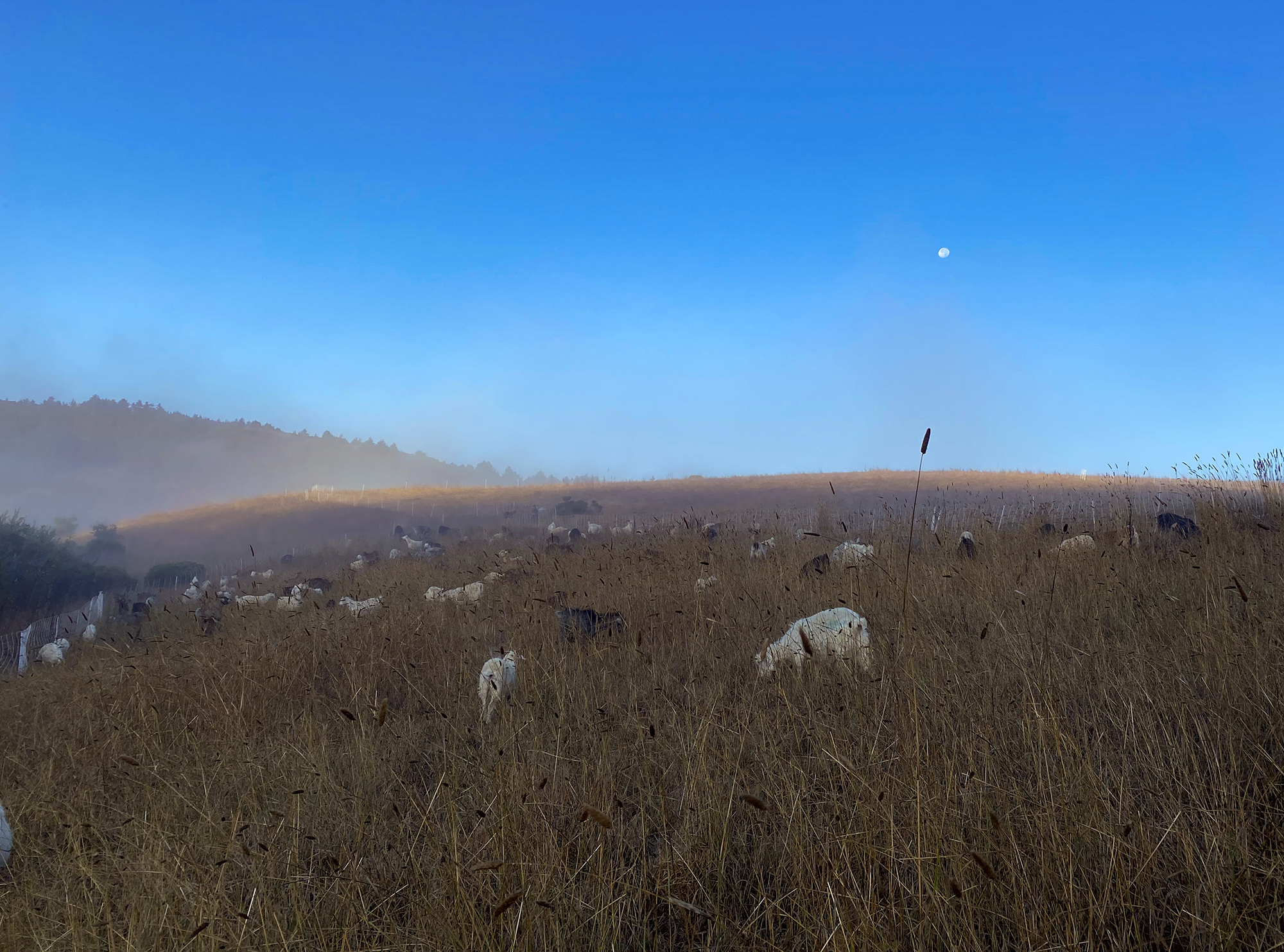
12/19/2023
By: Kim Kitchener
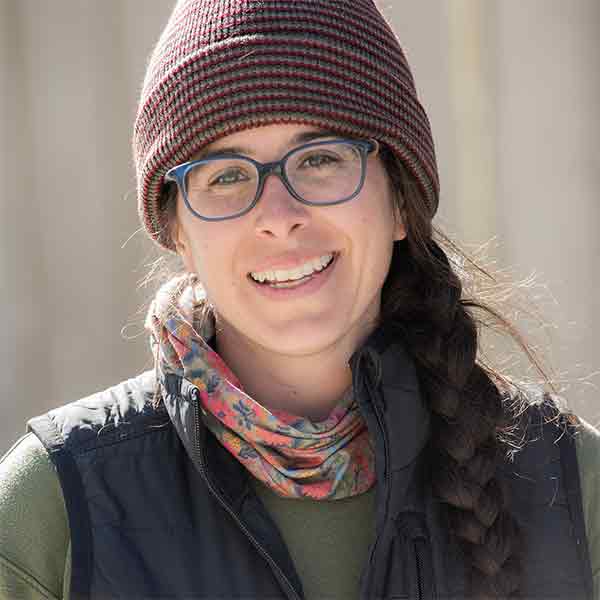 I think about death a lot.
I think about death a lot.
It’s an integral part of my job as a rancher—understanding who stays and who goes, when and why and how. Death can often be a tricky concept to grapple with, and I agree that it should not be taken lightly. Sometimes an animal dies and we don’t know why. However, we try our best to learn and adjust our practices to ensure a greater quality of life for the rest of our herd.
Death is not an easy thing, and it’s a great reminder that although we may not know everything, if we embrace the mysteries of death we may be able to understand life a little more fully.
Death is a part of health. Resiliency. Herd health. The health of the individual and the health of the whole, intricately connected.
Sometimes, death comes when you don’t want it to.
Sometimes, you’re the one to decide a death, to make a conscious choice to put an animal out of pain and suffering. Overriding your own personal emotions in order to take care of an animal properly.
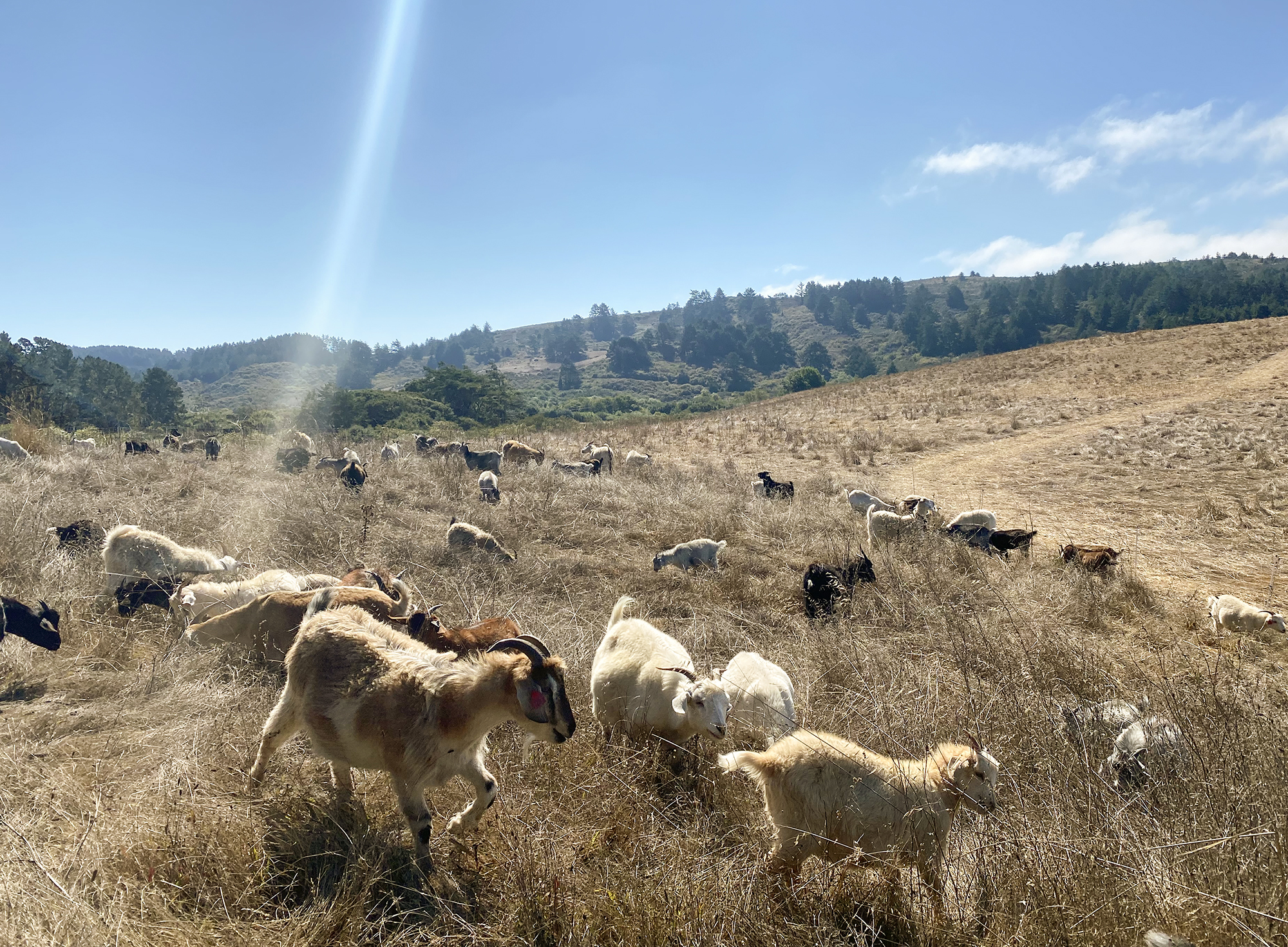
Ranching and working with livestock asks you to sit calmly on the border of life and death.
To be comfortable enough to reach back and forth through the veil, holding reverence and respect for each destination.
To become intertwined with the cycle and the timelines that happen between both gates.
To insert yourself into the thread and allow yourself to stretch with each individual’s story, the story of the herd, the story of the landscape.
All those lives, all those heartbeats become part of your story and your timeline.
The reverence for each animal and each life. The respect that goes into carefully executed grazing and proper nutrition and enrichment.
Part of what makes this approach to ranching special is that it extends beyond the animals (as all ranchers love their animals) and into the cycles of beginning and end within the landscape.
The cycling of sun to grass. Seed to forage.
Plugging into the magnificent system that is the earth eating itself over and over again.
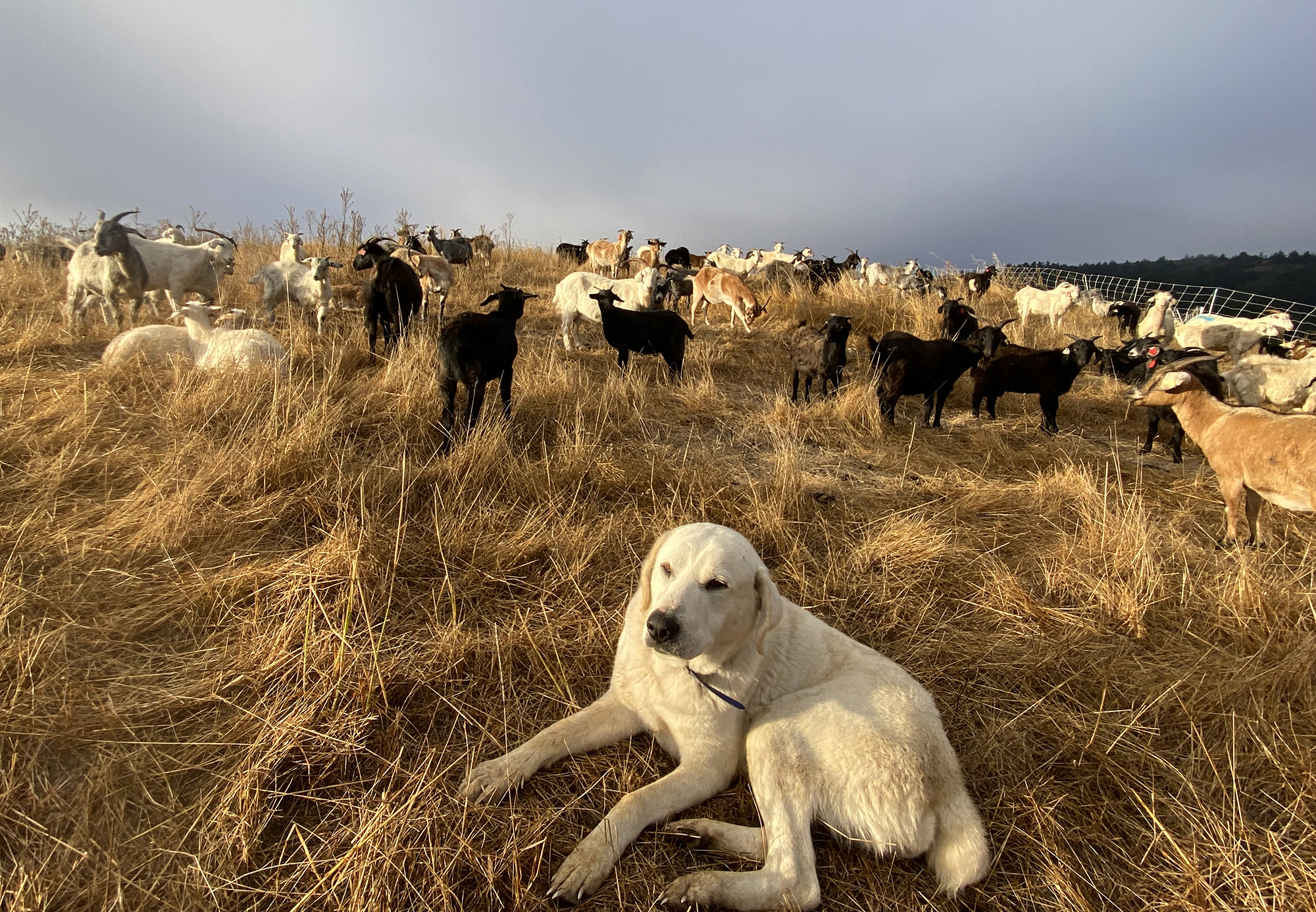
There is a growing number of humans interested in returning to a system of agriculture that concerns itself with multiple positive outputs: healthy animals, healthy land, healthy soil, and healthy humans.
There are many humans who never needed to return, but have just been holding the balance as a way of life, naturally.
I think this is really cool. That so many people have taken up and embraced these practices that often do not have short term results. Slow to progress, a slow burn, patient and enduring.
Trying and failing and learning from each mistake, each birth, each death and the endless cycles in between.
Embracing death is embracing life. Understanding the decadence that comes with death and dying fosters a profound relationship with life and the sustaining of life.
We never want a life to go to waste. We never want a slaughtered animal to go uneaten. We never want an animal to die under our care, but sometimes it happens. And it sucks. All at once humbling and frustrating. Why? How? What did I do? How did I let you down? What did I miss?
The will to live can be so strong that sometimes you don’t know until the very very end. Of course, there are indicators, but death often remains a mystery.
We have ways of understanding what we missed, what we could do differently, how we could be better.
Many times, you just don’t know. Because death happens.
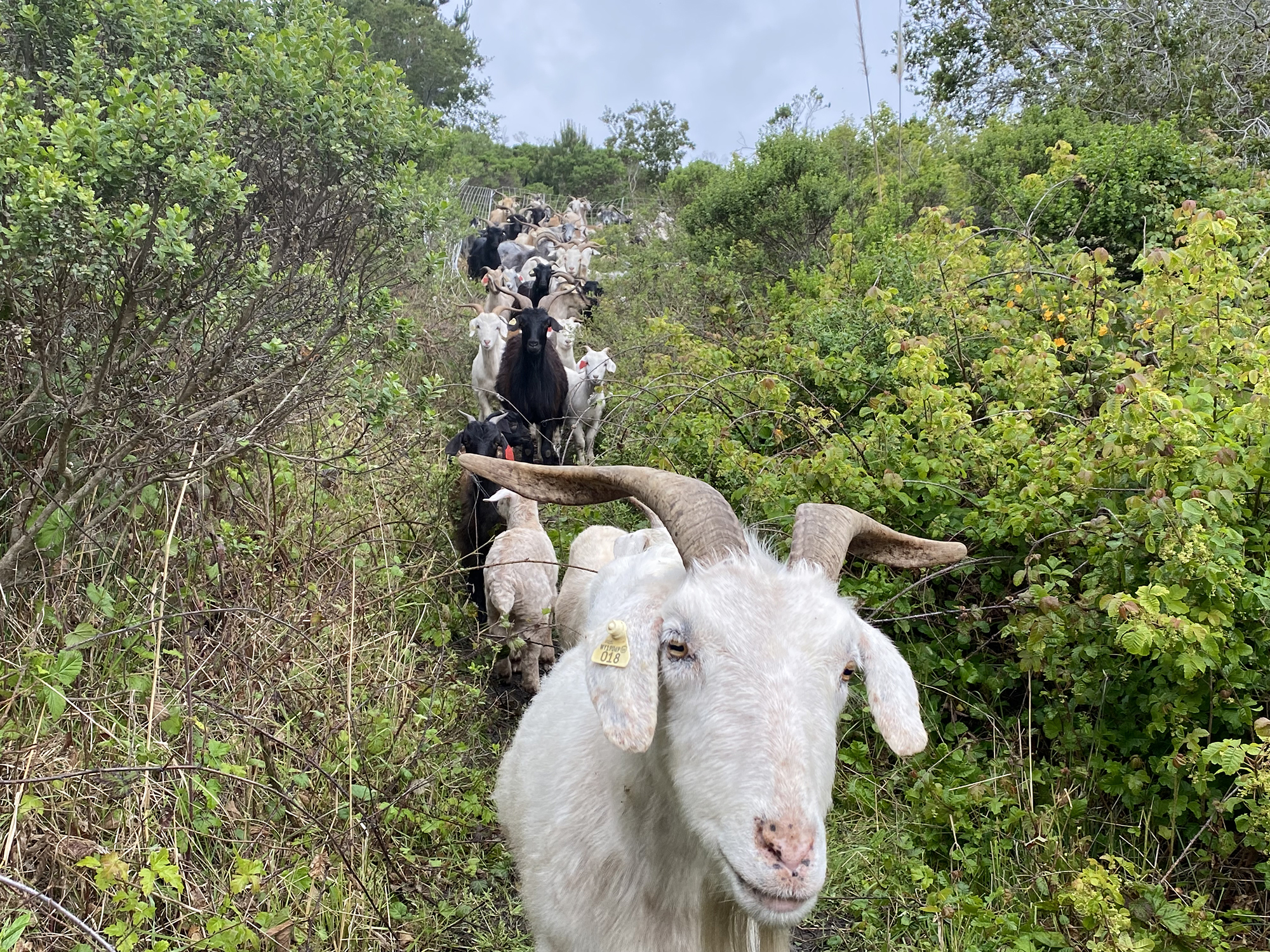
It’s amazing what you can discover in the wake of death about life itself.
I’m feeling rather electrified at this time, this year. There seem to be fewer and fewer hours and more and more thoughts. I feel myself fully on the precipice of winding down and getting going. Ending and beginning. Last year’s rainy, muddy, soggy winter seems far away and like it was yesterday.
So much is happening in the fewer and fewer hours of light. We’ve had our first soaking rains, green-up (i.e., germination) is happening, regrowth is happening, frosts are happening, it’s all happening.
We are winding down and getting going.
Half way in the dark and half way in the light.
There’s a certain kind of electricity in the air. As there should be.
It is a natural time of year to take stock of this magical feeling and lean into the satisfaction of hard work and possibilities that seem to be flowing from our fingertips.
So as the Earth is almost to her darkest point, we are too and with her we are wise to embrace the inching return to full days in the sun.
As farmers and ranchers, this is not an unfamiliar feeling; we ask ourselves to walk with this particular seasonal dichotomy through all cycles of the year.
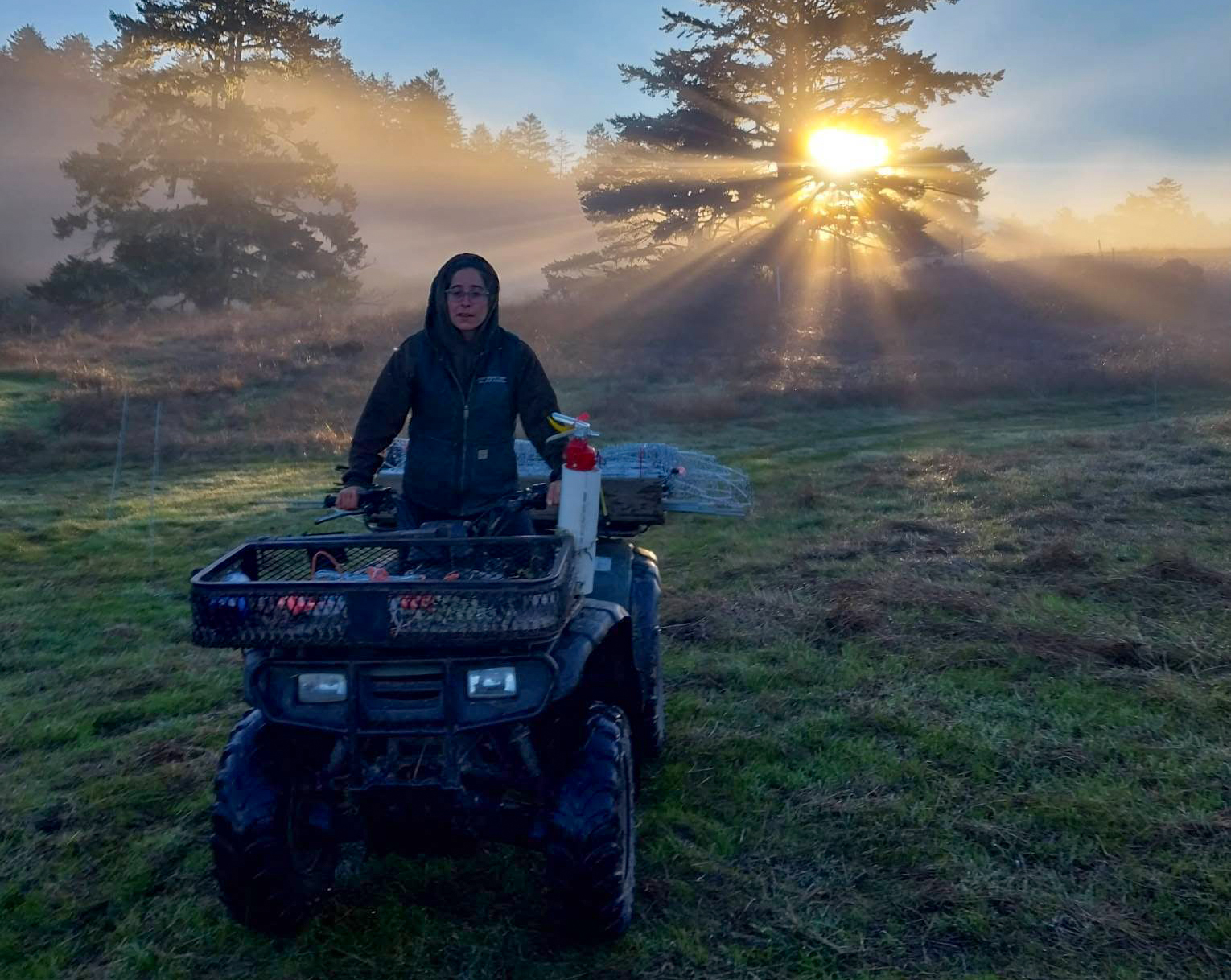
Beginning and endings.
It is ever present.
The honor of being so closely tied to the fine veil of life and death is never something I’ve taken for granted in this work; this tie is very possibly my greatest teacher in providing the utmost quality of care towards the animals we tend.
Being able to witness an animal’s birth and eventual death gives me renewed reverence for how tender and wonderful life can be.
Winding down in these darkening days helps put in perspective how awesome it is to be a part of the Earth’s endless cycle of creation and destruction.
There are so many people out there who are dedicated to staying honest with their intentions of raising the healthiest, happiest of animals. Time and energy are poured into flocks and herds to bring the highest quality meat to the public. It is not easy work, but incredibly worthwhile to see people enjoying and partaking in the end results of many months of hard work and practice.
As we gather with friends and family to enjoy the simultaneous completion of one cycle and the beginning of a new one, I invite us to take a moment to appreciate and reflect on the ham, the turkey, the beef roast, the duck on your table; and be assured that the nourishment you will receive from sharing an animal raised with the utmost attention and care brings us even closer to each other.
As humans, we are often disconnected from the animals and meat we are enjoying. I do believe that by digging into this discomfort, we can hold so much more appreciation for the lives we are blessed with and gratitude for the animals that feed us.